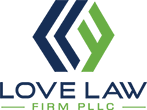
On October 31, 2017, it became illegal for private employers of any size in New York City to ask about an applicant’s salary history during the hiring process, including in advertisements for positions, on applications, or in the interviewing process. If you have even one employee in New York City, this law applies to you and your hiring practices.
Who Does This Apply To?
In a nutshell, for employers, this means that when you are interviewing someone in-person (1) for a position in New York City, and/or (2), you and/or the applicant are in New York City for the interview, then you cannot ask about the applicant’s salary history. If you are interviewing a New York City resident for a position outside of New York City and the interview takes place outside of New York City, then the law (most likely) does not apply. (We say most likely because this is a new law, no case law is established, and the official statements on the law state that the application of the statute will be on economic injury that occurs within NYC.)
This law does not apply to applicants seeking to transfer jobs within a single company. It also doesn’t apply to public employees, employees covered by a collective bargaining agreement, and the conversion of temporary to permanent employees at a company (e.g., an employer can use the hourly rate paid to a temporary employee to help determine the salary level of that employee on a full-time basis). According to the City Council, asking about past salaries can perpetuate unequal pay levels rather than allow applicants to seek pay based on their qualifications and earnings potential. It is believed that banning these types of questions will help lessen the pay gap. “By banning questions about salary history, we are putting a stop to an employment practice that perpetuates gender wage discrimination and hurts all New Yorkers,” said Public Advocate Letitia James, who introduced the legislation, in a statement.
What Happens If I Don’t Comply?
The New York City Commission on Human Rights may impose a civil penalty of up to $125,000 for an unintentional violation, and up to $250,000 for a “willful, wanton or malicious act.” In addition, individuals can bring private civil actions against an employer who does so.
What Am I Supposed To Do? Or Not Do?
Your application form cannot have a request for information about past salary. It is not enough to tell people to ignore that section, or to tell them that it is option. It simply cannot be on the form. During interviews, you may not ask about current or past salaries, commissions, profit sharing, retirement plans, bonuses, automobile allowances, or other compensation data. Also, you may not ask about salary data when performing reference, background and/or credit checks.
Note: you may still perform those checks (in compliance with law), but you cannot seek out salarydata in them. Not only can you not try to seek out the data about that particular applicant, you cannot use publicly available information to back into the information. One resource that immediately comes to mind is the popular website Glassdoor which reports salaries for positions at different firms. However, an employer could use the salary data of Glassdoor for an industry.
If the application voluntarily discloses the information, you still need to be careful. For example, the court may determine that the disclosure was not, in fact, voluntary but rather the result of coercion or other pressure. However, if the disclosure was proper, the employer may use that to determine salary, benefits and other compensation. In addition, the employer is also to then use the data to determine whether or not to offer the position based on the veracity of the information provided (i.e., if the applicant lied about salary level, the employer can use that as the basis for denying employment). The ban on seeking out prior salary data applies both pre- and post-conditional offer of employment.
However, an employer may inquire about deferred compensation and unvested equity that would be forfeited if the applicant were to take the position, in order to make an offer to the applicant.
What Can I Do Practically?
|
This legislation does not mean that there is no legal way to inquire about salary. Employers can still ask candidates about their “salary expectations,” or the amount of money they would like to make in their new role, including salary, bonuses, and benefits. Employers in New York City can also ask about“objective measures” of the applicant’s productivity such as the size of the applicant’s book of business, profits generated or other objective indicators of performance. Obviously, the law requires that you and your managers understand that they cannot ask these types of questions in interviews and you should put that direction in a written policy. Any form that requests salary data needs to be updated to remove such request. Employers should train those involved in the hiringprocess on how to solicit information about an application’s skills and qualifications, and other information that may be properly obtained. If you, as a former employer, are requested to release information about a former employee’s salary, you should be cautious in releasing that data. The best practice is to have written authorization from the employee to do so. Finally, there is no prohibition against you as the prospective employer from being transparent about your expectations of the salary for the position. The employer can disclose to candidates what you expect to pay for the position, and allow candidates to remove themselves from consideration, if they desire. If you liked this article, please check these out as well: |

